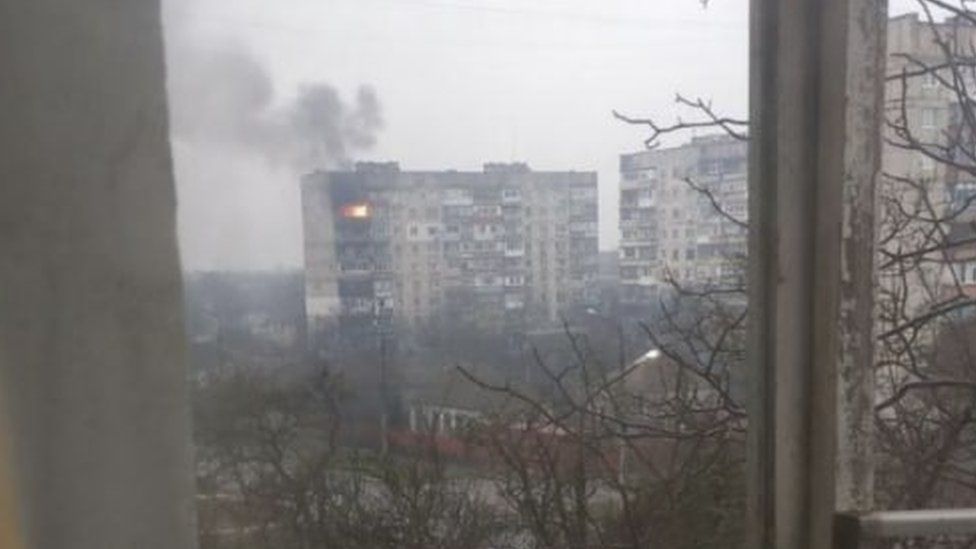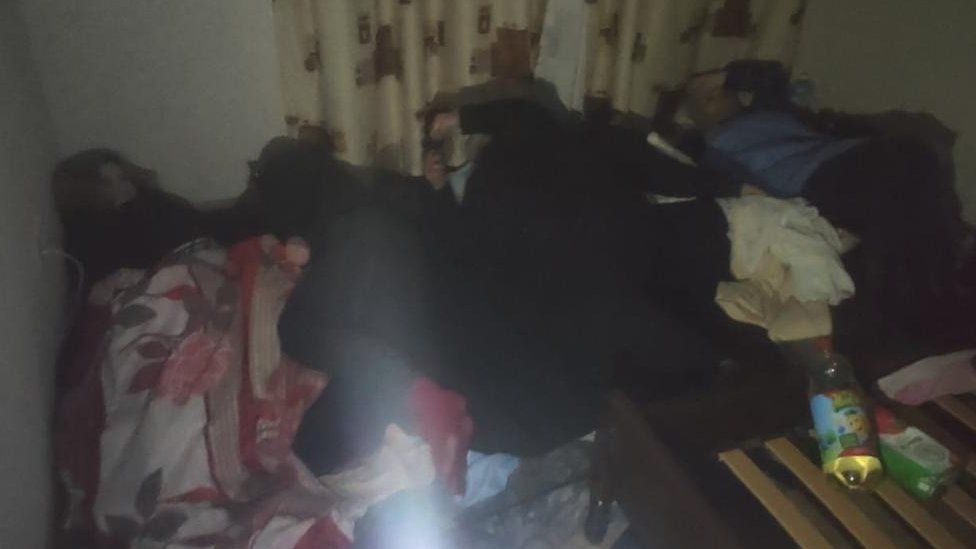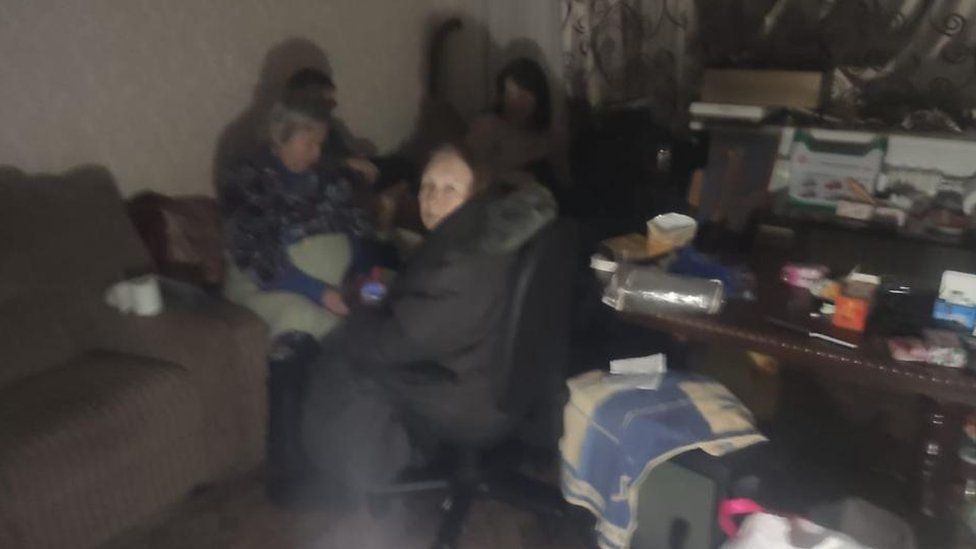Mariupol: Fires, no water, and bodies in the street

A ceasefire, and a chance for civilians to leave, was announced on Saturday morning in the Ukrainian port city of Mariupol, where an estimated 200,000 people are trapped under heavy bombardment by Russian forces.
The city arranged 50 buses, and many people travelled to the city centre to get them. But after less than two hours, Russia's army began shelling residential areas again, trapping civilians who had begun their escape.
The city is now in its fifth day with no water, no power, no sanitation, and food and water are fast running out.
Maxim, a 27-year-old IT developer who is caring for his grandparents in their six-floor apartment, spoke to the BBC on Saturday night to describe a day that began with hope and ended in despair.

We tried to escape today, during the planned time of no shooting. We heard we could get out.
As fast as I could, I packed four bags for me and my grandparents with warm clothes and food, and all of our remaining water, and I packed them into my car.
My grandparents are in their eighties, they cannot help. I carried everything down six flights of stairs to my car. There is no lift now.
Right when I was ready to drive, the shelling started again. I heard explosions near to us. I carried everything back upstairs as fast as I could to the apartment. From there, I could see smoke rising from the city and smoke rising from the highway to Zaporizhzhia where people were supposed to escape.
So I am still in my grandparents' apartment and the shelling and bombing has continued all day. But now instead of three of us here, there are nearly 20.

Many people came into the city centre because they heard there was a ceasefire and buses to take them out, and to flee the shelling there. Then they could not get back to their shelters when it started again.
So we have taken many people into the apartment. They are from the left side of the city, they say it is destroyed. All the houses are burning and no one can put out the fires. There are many dead bodies lying in the streets and no one can carry them.
I know three of the people from before, from my neighbourhood, but the rest I do not know. The oldest is a woman in her late 70s, the youngest is a small child. We also have two cats, a parrot and a dog.
We have tried to make space for the women and children to sleep on the floor. We don't have any extra mattresses but we have put some spare carpet and clothes on the floor for them to lie on.
We have run out of bottled water. We are down to the water that I filled in the bath before the taps went off. The gas is the only thing still working - we can use it to boil the bath water to drink.

Today the police opened the stores and told people to take everything, because the people here have no food and drink. Our neighbours manged to take some candy, some fish and some fizzy drinks.
The ceasefire was a lie. One side never planned to stop firing. If they say there is a ceasefire tomorrow [Sunday] we will have to try go, but we don't know if it will be real. Maybe now we are better to hide.
You can keep calling me as long as I have some battery left in my phone, but I don't know how long that will be. After today I am without hope. From now on we do what we have to each day only to survive and for our neighbours to survive.
After that I don't know what comes next. We are very tired and we do not see a way out.



Are you in the Mariupol area? Share your experiences by emailing haveyoursay@bbc.co.uk.
Please include a contact number if you are willing to speak to a BBC journalist. You can also get in touch in the following ways:
- WhatsApp: +44 7756 165803
- Tweet: @BBC_HaveYourSay
- Upload pictures or video
- Please read our terms & conditions and privacy policy



No comments